MercoPress. South Atlantic News Agency
Environment
-
Thursday, April 24th 2025 - 18:10 UTC
Darwin Plus projects in Falklands, and UK Prime Minister’s ODA (Development Assistance) Announcement
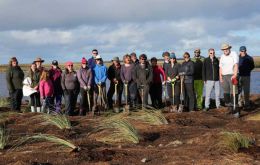
On the 25 February, the UK Prime Minister announced that the UK will increase defence spending to 2.5% of UK gross national income (GNI) from 2027. This will fund the capabilities, technology and industrial capacity vital to keep the UK and allies safe amid an era of renewed state conflict.
-
Thursday, April 24th 2025 - 18:03 UTC
International Mother Earth Day, FAO launches new climate change website

Protecting our planet from the climate crisis through sustainable agri-food systems is fundamental if we are to ensure food security for the world’s rapidly growing population.
-
Thursday, April 24th 2025 - 07:28 UTC
US Senate bipartisan measure to bolster response to IUU fishing

The Unites States Senate has introduced legislation designed to tackle the problem of illegal, unreported, and unregulated (IUU) fishing. The bipartisan measure is geared “to deter IUU fishing by China and othe bad actors, and bolster US international response to these illegal activities”.
-
Thursday, April 24th 2025 - 06:53 UTC
Mensun Bound Inspires at Ocean Business 2025, Southampton

Mensun Bound, renowned maritime archaeologist and Trustee of the Falklands Maritime Heritage Trust (FMHT), delivered a powerful keynote speech at the prestigious launch of Ocean Business 2025, held earlier this month in Southampton.
-
Thursday, April 24th 2025 - 06:13 UTC
Talks on discovery in Antarctica of the ozone hole 40 years ago at Royal Geographic Society
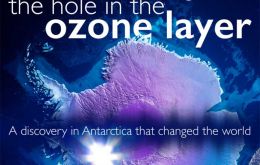
To commemorate the extraordinary moment the ozone hole was discovered in Antarctica 40 years ago, British Antarctic Survey (BAS) has teamed up with the Royal Geographical Society (RGS) in London to host a special series of talks on Tuesday, 6 May 2025.
-
Thursday, April 24th 2025 - 05:58 UTC
IAATO Reaffirms Commitment to Antarctic Ambassadorship with Update to Bylaws

The International Association of Antarctica Tour Operators (IAATO) has reaffirmed its dedication to fostering global stewardship for Antarctica through a key update to its bylaws, further solidifying Antarctic ambassadorship as a central pillar of its mission.
-
Wednesday, April 23rd 2025 - 18:39 UTC
UN Secretary-General Antonio Guterres’ Earth Day message 2025
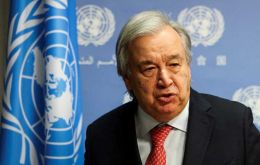
Mother Earth is running a fever. Last year was the hottest ever recorded: the final blow in a decade of record heat. We know what’s causing this sickness: the greenhouse gas emissions humanity is pumping into the atmosphere – overwhelmingly from burning fossil fuels.
-
Friday, April 18th 2025 - 11:01 UTC
Falklands/Darwin Plus: RSPB fears on Budget for UK conservation fund in Overseas Territoriesa
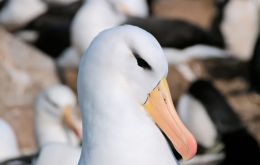
The Royal Society for Protection of Birds, RSPB, has strongly defended scientific research in the UK Overseas Territories, which face an uncertain future as core funding is threatened by the austerity of UK’s economic and budgetary reforms.
-
Friday, April 18th 2025 - 10:24 UTC
Brazil's Fire Monitor detects 70% reduction in burned areas
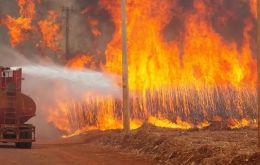
Brazil reduced its burned areas by 70% yoy in the first quarter of 2025, with fires affecting 912,900 hectares, down from 2.1 million hectares. The reduction is largely attributed to the rainy season, although the Cerrado biome saw a 12% increase in burned areas, surpassing historical averages. The Amazon remained the most affected, accounting for 78% of the total burned area despite a 72% decrease compared to 2024, according to figures released Wednesday by the Fire Monitor, a MapBiomas tool that uses satellite imagery to track fire scars nationwide.
-
Saturday, April 12th 2025 - 10:45 UTC
Bolivia's YPFB seeks partner for promising gas field

The State-run Yacimientos Petrolíferos Fiscales Bolivianos (YPFB) is advancing efforts to find an international partner to develop the Mayaya Centro gas field in La Paz, which has been deemed one of 2024’s top ten global discoveries in the sector.
